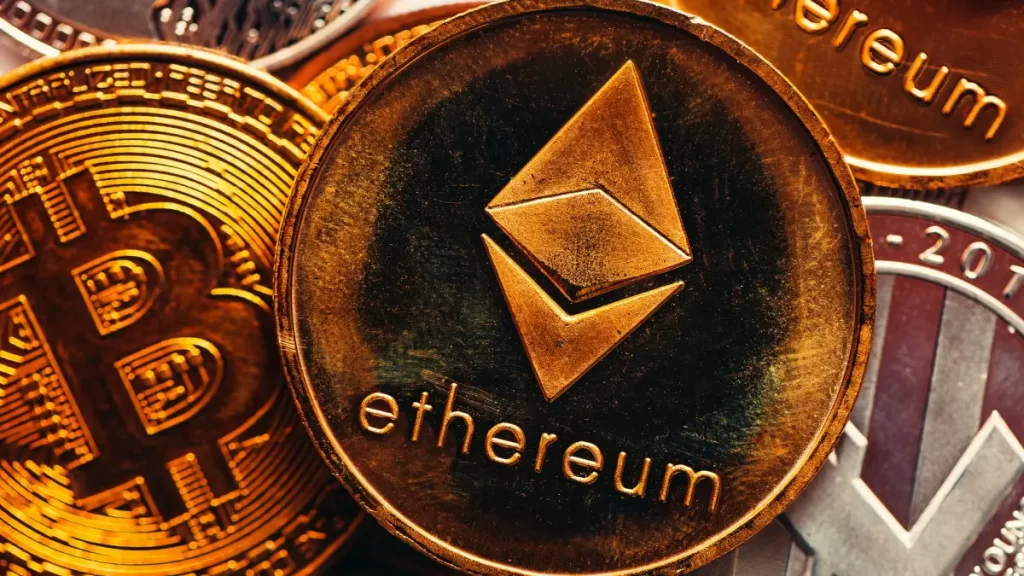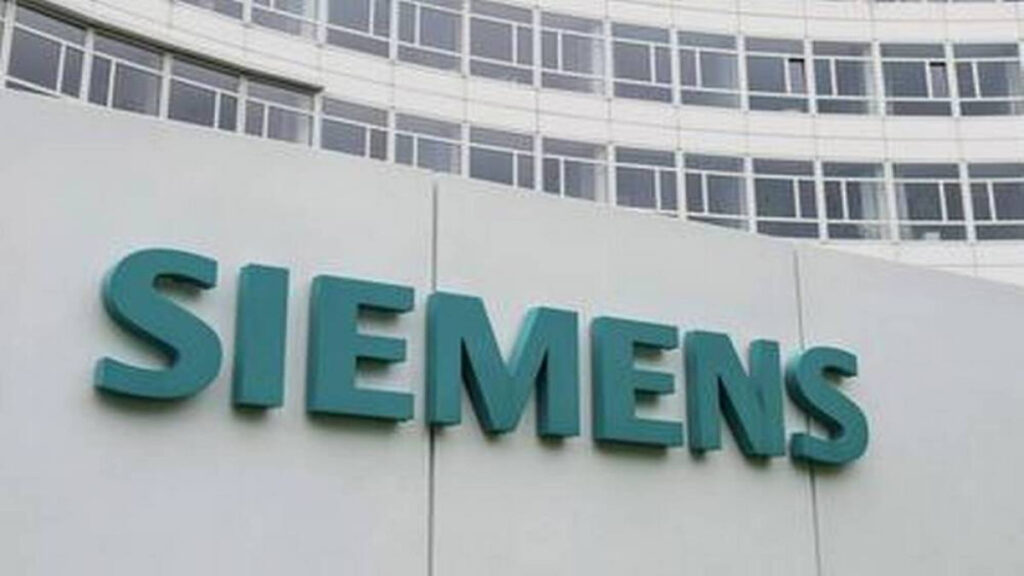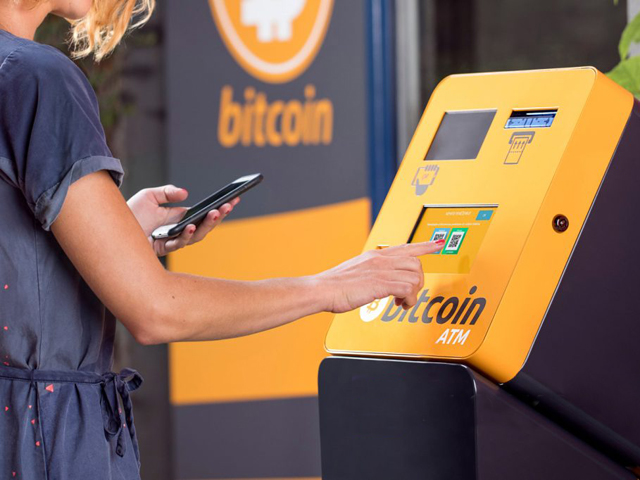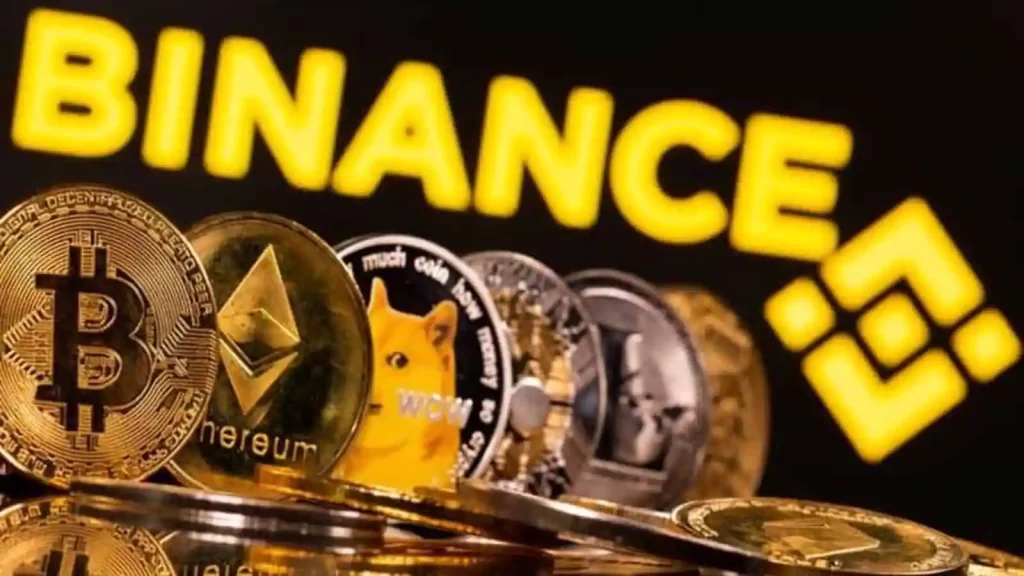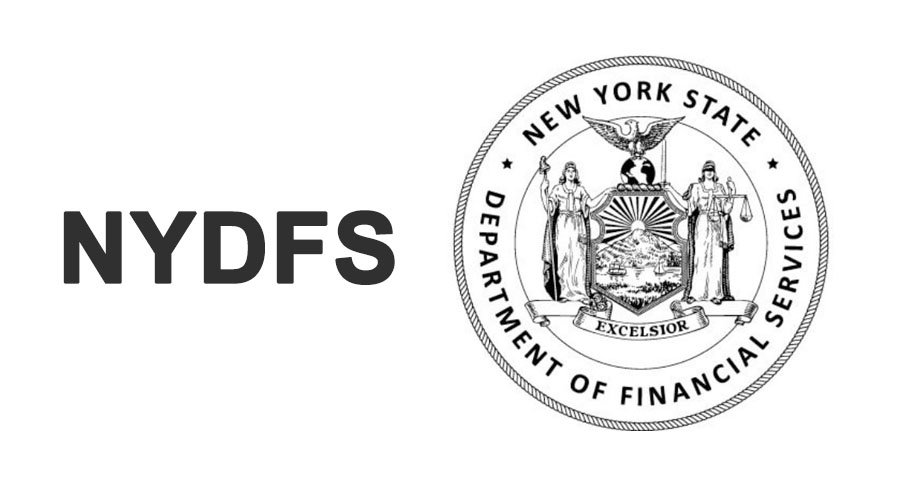The United States Securities and Exchange Commission (SEC) has launched a lawsuit against Terraform Labs and its co-founder Do Kwon, according to a recent complaint.
Terraform Labs’ created the TerraUSD stablecoin, which collapsed last year due to fraud. Regulators claim that Terraform and Kwon had defrauded investors by misleading them on who used the cryptocurrency for payments and designating LUNA and Anchor Protocol as “crypto asset securities.”
Terraform and Kwon face charges of selling unregistered securities, security-based swaps, and other offences.
The suit alleges: “Terraform and Kwon also misled investors about one of the most important aspects of Terraform’s offering – the stability of UST, the algorithmic ‘stablecoin’ purportedly pegged to the U.S. dollar. UST’s price falling below its $1.00 ‘peg’ and not quickly being restored by the algorithm would spell doom for the entire Terraform ecosystem, given that UST and LUNA had no reserve of assets or any other backing.”
Kwon and Terraform employees worked jointly with an unnamed US trading firm to resolve the digital coin’s peg to USD after dropping nearly 10 cents in May 2021.
The anonymous trading firm later acquired the UST tokens and traded them for LUNA.
SEC Complaint Details, Comments
Explaining further, the complaint continued: “Almost immediately upon UST’s recovery in May 2021, Terraform and Kwon began to make materially misleading statements about how UST’s peg to the dollar was restored.”
The two suspects also mislead invstors on the cause bhind UST’s recoupling with the USD. The digital currency later collapsed last year, triggering bankruptcies across crypto markets.
SEC Director of Enforcement, Gurbir Grewal, said in a press release: “Today’s action not only holds the defendants accountable for their roles in Terra’s collapse, which devastated both retail and institutional investors and sent shock waves through the crypto markets, but once again highlights that we look to the economic realities of an offering, not the labels put on it.”
He concluded: “As alleged in our complaint, the Terraform ecosystem was neither decentralized, nor finance. It was simply a fraud propped up by a so-called algorithmic “stablecoin” – the price of which was controlled by the defendants, not any code.”
Hackers hit Platypus Finance, a platform for decentralised finance (DeFi), with a major flash-loan attack, reports revealed.
Blockchain cybersecurity company CertiK wrote in the report that the thefts cost the crypto protocol roughly $8.5 million.
The hack also cost its native token, Platypus USD (USP), its peg to the US dollar, sending the coin plummeting from $1 USD to 48 cents.
#CertiKSkynetAlert 🚨
— CertiK Alert (@CertiKAlert) February 16, 2023
We are seeing a #flashloan attack on @Platypusdefi resulting in a potential loss of ~$8.5M.
Tx AVAX: 0x1266a937c2ccd970e5d7929021eed3ec593a95c68a99b4920c2efa226679b430
Stay Frosty! pic.twitter.com/AM2HOM5M2r
The platform automates stablecoin swaps for crypto traders and hosts $59 million USD in virtual assets. At its peak, the platform held up to $1.2 billion in March last year, according to data.
Flash loans allow traders to profit from arbitrages, but conversely invite exploitative users to drain digital assets on DeFi platforms.
The news comes after CertiK reported in early January that 2023 would continue trends from last year, where cybercrime would remain steady in frequency and number. The report noted that 2022 saw nearly $3.7 billion hacked from victims, up from $3.2 billion in 2021.
The world’s number two cryptocurrency has plummeted in supply following its Merge update. Reserves nosedived after the network upgraded in September last year, which switched from a Proof-of-Work (PoW) to a Proof-of-Stake (PoS) network.
On-chain data from Glassnode showed that the number of Ethereum (ETH) in exchanges decreased by 37 percent, a significant drop signalling bullish markets.
📈 #Ethereum $ETH NVT Signal (7d MA) just reached a 2-year high of 2,480.337
— glassnode alerts (@glassnodealerts) February 15, 2023
Previous 2-year high of 2,479.582 was observed on 14 February 2023
View metric:https://t.co/qzgQvWFvGX pic.twitter.com/i5Uu3k86FF
Fewer ETH in circulation indicates a spike in value for the cryptocurrency, similar to a coin burn.
Currently, there are 13.36 million ETH in circulation valued at $19.7 billion USD in mid-February, significantly down from 19.12 million ETH totalling $31.3 billion in September before the upgrade.
Steve's DC/MACD Indicator printed a Bull signal January 4th on the #ETH 1W chart.
— Steve Courtney ~ Crypto Crew University 🤓 📈 (@CryptoCrewU) February 7, 2023
Students who traded this increased their #Ethereum by 32%✅👊
Comment below, 👇
"what percentage gains has the DC/MACD made you this past 1 year?"
"Double or Single strategy?" pic.twitter.com/qq8bnfXv0h
Traders also anticipate the digital coin’s Shanghai upgrade set to launch in March, which will enhance key issues with the network and provide stakers and validators to withdraw Beacon Chain holdings.
Beacon Chain investors have staked 16 million ETH totalling 14 percent of the total number of coins in circulation, or $25 billion at current market prices.
Abu Dhabi has announced its latest initiative for incubating Web3-based solutions around the blockchain and metaverse.
The programme aims to build an ecosystem of Web3 startups along with government, financial, corporate, and other sectors involved across the United Arab Emirates (UAE). In a press release, the Emirate stated it had backed its Hub71+Digital Assets initiative with roughly $2 billion USD.
Abu Dhabi’s initiative also plans to facilitate a cutting-edge blockchain infrastructure along with numerous virtual assets and accommodating regulations.
First Abu Dhabi Bank has tasked its FABRIC research and innovation centre with working jointly with service providers and digital asset platforms to boost and secure use cases for virtual products.
Hub71 will host the initiative by assisting enterprises to work across Abu Dhabi, the Middle East, and numerous markets worldwide. Web3 startups valued over $1 billion USD will receive priority.
According to Ahmad Ali Alwan, deputy chief executive of Hub71, the launch of the initiative would signal Abu Dhabi’s embracing of “disruptive businesses that drive change and transformation on a global scale.”
The initiatives partnership with the Abu Dhabi Market Group (ADMG), FAB, FABRIC, and others would provide funding, research and development, and additional support. Those involved would operate in the largest Middle East North Africa (MENA) region’s regulated virtual assets jurisdiction.
A DIgital Dubai?
The news comes as the UAE pushes to develop Web3 and metaverse solutions, namely after opening a trove of initiatives aimed at building use cases for the emerging technologies.
The nation aims to facilitate the use of non-fungible tokens, metaverse platforms, Web3 solutions, and the blockchain as part of its metaverse strategy launched last year.
The UAE government has been proactive in embracing blockchain technology and the emerging markets it encompasses, including the Metaverse, nonfungible tokens (NFTs), and Web3.
The nation launched a metaverse platform to expand medical services to citizens via the Ministry for Health and Prevention (MOHAP).
Elon Musk has once again promoted his floof-coin Dogecoin (DOGE) after tweeting the new chief executive of Twitter: his Shibu Inu Floki.
Floki is the name of a cryptocurrency similar to Dogecoin and Shibu Inu, which feature the Japanese dog breed. Prices for Floki jumped 50 percent after news of the tweet.
The new CEO of Twitter is amazing pic.twitter.com/yBqWFUDIQH
— Elon Musk (@elonmusk) February 15, 2023
Musk tweeted at the time: “The new CEO of Twitter is amazing.” News of the tweet sent the price of Dogecoin (DOGE) skyrocketing from 0.08294 to 0.89 at its peak, or a jump of 5.4 percent, CoinMarketCap data revealed.
Following Musk’s acquisition of Twitter in late October, he replaced former Twitter CEO Parag Agrawal after a suspected row between the two executives. Musk unfollowed Agrawal on Twitter after the former became the largest shareholder of the company.
After the incident, Musk posted a poll on whether he should resign as CEO of the firm, but later lost his position after people voted him out.
Never felt more bullish on #dogecoin
— The Doge Coach (@thedogecoach) February 15, 2023
Doge-1 round the corner
Elon emerges with new tweets on doge
Twitter Payments business on it's way
The chart looks horny as fuck
DOGE/USDT and DOGE/BTC are ready… pic.twitter.com/xxblGYlTCb
He said in a tweet in December: “I will resign as CEO as soon as I find someone foolish enough to take the job! After that, I will just run the software & servers teams.”
According to reports, Floki’s price doubled after its decentralised autonomous organisation (DAO) passed measures to burn $100 million in tokens.
This decreases token supplies and boosts the value of remaining ones by decreasing circulation numbers.
Twitter Updates, DOGE Pupdates
News of the latest senior appointment to Twitter comes after Musk pumped DOGE to roughly 8 cents in late October. Circulating reports that Twitter could develop wallets for cryptocurrencies triggered the 40 percent spike in the altcoin’s value. Further reports confirmed the measure.
Twitter started its application processes for licencing across the United States for the pending payment system. Working with product manager director Esther Crawford, Musk hoped to open the services for “peer-to-peer transactions, savings accounts and debit cards.”
Additional news broke in August last year after the Ethereum network launched its long-awaited software update. The developments pushed Dogecoin up 14 percent over five days time and Shibu Inu roughly 40 percent, data from Bloomberg revealed at the time.
Siemens has launched Germany’s first digital bond based on the blockchain, it announced this week.
The German engineering and tech behemoth became one of the country’s first enterprises to issue blockchain bonds. The securities are valued at €60 million and mature after one year, following the German Electronic Securities Act.
Investors such as DekaBank, Union Investment, and DZ Bank purchased the bonds. Regulators did not require the securities to obtain central clearing and paper-based global certificates, the statement read.
Siemens claimed that the Polygon-based blockchain bonds expedited transactions faster and more efficiently than traditional methods. It also stressed how using digital bonds over paper and traditional means could offer benefits.
The statement continued: “Issuing the bond on a blockchain offers a number of benefits compared to previous processes. For instance, it makes paper-based global certificates and central clearing unnecessary. What’s more, the bond can be sold directly to investors without needing a bank to function as an intermediary.”
The document cleared in two days, despite using traditional payments due to a lack of a digital euro. Siemens hopes to lead markets in developing digital securities and capital solutions.
Peter Rathgeb, Corporate Treasurer for Siemens AG, added: “By moving away from paper and toward public blockchains for issuing securities, we can execute transactions significantly faster and more efficiently than when issuing bonds in the past.
He added that the successful cooperation with project partners allowed the firm to reach “an important milestone” in developing digital securities in Germany.
The news comes as Siemens advocates implementing blockchain technologies across industry verticals. The company was among the first, along with JP Morgan, to test blockchain-based automated payment systems on the latter’s Onyx system — the world’s first.
The Financial Conduct Authority has launched a crackdown on suspected illegal cryptocurrency cashpoints across Leeds.
The crypto machines are not registered with the FCA to operate in the country, it said in a recent press statement. It added that it worked with authorities such as the local police to remove the machines.
Despite this, the FCA does register services for buying digital assets on an app or bank transfer service, where customers can withdraw funds from cashpoint ATMs.
According to a Whitehall report, cybercriminals used the machines as “money mules” to launder money.
Comments on Crypto Cash Machines
Det Sgt Lindsey Brants, Head of the West Yorkshire Police Force Cyber Team, said in a statement:
“Having conducted intelligence-gathering work across West Yorkshire, we soon established the locations of several live crypto ATMs […] We are pleased to be able to work in partnership with the FCA in what we believe is a national first here in West Yorkshire.”
Authorities warned crypto machine operators to stop using the devices, adding that money laundering breaches would trigger investigations, with the FCA receiving updates. Crypto operators facing charges could receive up to two years in prison.
Mark Steward, Executive Director of Enforcement and Market Oversight at the FCA, said:
‘Unregistered Crypto ATMs operating in the UK are doing so illegally. We will continue to identify and disrupt unregistered crypto businesses operating in the UK. Crypto businesses operating in the UK need to be registered with the FCA for anti-money laundering purposes.
Steward added that crypto products were “currently unregulated and high-risk, and you should be prepared to lose all of your money if you invest in them.”
Cryptocurrency giant Binance has faced massive headwinds on Monday after reports found net outflows of $831 million in a 24-hour period.
Blockchain research firm Nansen revealed the data, which follows a major regulatory crackdown on Binance USD (BUSD) issued by crypto trading platform Paxos.
Nansen blockchain data showed that users withdrew roughly $2.8 billion of their digital assets, surpassing $2 billion in deposits over the same period.
The withdrawals hit Binance after the New York Department of Financial Services slapped Paxos with an order to stop issuing the stablecoin. The third-largest in the world, BUSD accounts for 35 percent of Binance’s total trading volumes.
Binance CEO Comments on SEC-Paxos Lawsuit
In a series of tweets, Binance chief executive Changpeng Zhao (CZ) commented on the ongoing developments to his followers that “all funds are #SAFU.”
CZ stated that due to the regulatory crackdown, BUSD’s market capitalisation would decrease over time, adding Paxos would “continue to service the product, and manage redemptions.”
He added that he did not have any information on the SEC lawsuit against Paxos and that the latter had “assured us the funds are #SAFU, and fully covered by reserves in their banks.”
#BUSD. A thread. 1/8
— CZ 🔶 Binance (@cz_binance) February 13, 2023
In summary, BUSD is issued and redeemed by Paxos. And funds are #SAFU!
Zhao said: “I am not an expert on US laws. But personally […] ‘IF’ BUSD is ruled as a security by the courts, it will have profound impacts on how the crypto industry will develop [in] the jurisdictions where it is ruled as such. Binance will continue to support BUSD for the foreseeable future.
He stated that Binance did not “foresee users migrating to other stablecoins over time,” adding it would make product adjustments “accordingly.”
CZ concluded: “Given the ongoing regulatory uncertainty in certain markets, we will be reviewing other projects in those jurisdictions to ensure our users are insulated from any undue harm.”
A key exec from the US Federal Reserve warned investors this week that cryptocurrency prices could plummet to zero in the future.
Fed governor Christopher J Waller said in a recent speech at the Global Interdependence Center:
“To me, a crypto asset is nothing more than a speculative asset, like a baseball card. If people believe others will buy it from them in the future at a positive price, then it will trade at a positive price today. If not, its price will go to zero.”
He continued: “If people want to hold such an asset, then go for it. I wouldn’t do it, but I don’t collect baseball cards, either […] If you buy crypto assets and the price goes to zero at some point, please don’t be surprised and don’t expect taxpayers to socialize your losses.”
Waller continued, explaining that several major “crypto-related firms,” which included “payment platforms, exchanges, crypto lenders, and hedge funds” had filed for bankruptcy. He added that retail and institutional investors faced difficulties due to the ongoing crypto winter.
He also criticised banks and other financial institutions facilitating cryptocurrency trading. He stated such organisations backing crypto transactions presented “a heightened risk of fraud and scams, legal uncertainties, and the prevalence of inaccurate and misleading financial disclosures.”
Waller later urged that banks joining cryptocurrency trading programmes should meet Know Your Customer (KYC) and anti-money laundering obligations.
He concluded that “spillovers” across the financial system had been “minimal.”
Fed Comments on Bank-Crypto Collaborations
The news comes after Michael Barr, Federal Reserve vice chairman of supervision, warned banks accepting cryptocurrency deposits should remain aware of increased liquidity risks.
In a speech in October, he said the Fed was working with regulatory groups to note risks to crypto-backing banks across the financial industry.
Barr stated at the time: “The recent volatility in crypto markets has demonstrated the extent of centralization and interconnectedness among crypto-asset companies, which contributes to amplified stress. While banks were not directly exposed to losses from these events, these episodes have highlighted potential risks for banking organizations.”
Circle, a rival stablecoin issuer of Paxos, blew the whistle on the latter’s cryptocurrency offering to New York regulators, fresh reports have revealed.
According to a Bloomberg report on Monday, Circle tipped off the New York Department of Financial Services (NYDFS) in the autumn of last year. Citing people familiar with the matter, it alleged to regulators that Binance failed to show sufficient reserves to support Binance USD (BUSD) tokens issued from the competitor platform.
The news comes after Reuters received comment from an NYDFS spokesperson revealing Paxos did not issue BUSD in a “safe and sound” manner.
This allegedly violated obligations to conduct “tailored, period risk assessments” and due diligence on Binance and Paxos-issued BUSD customers to prevent “bad actors from using the platform,” the report read. The NYDFS later ordered Paxos to halt minting BUSD due, citing its ties to Binance.
Paxos later issued a statement that it had stopped minting BUSD tokens, adding that US dollar-denominated reserves backed all current BUSD tokens.
The company added: “BUSD will remain fully supported by Paxos and redeemable to onboarded customers through at least February 2024. New and existing Paxos customers will be able to redeem their funds in US dollars or convert their BUSD tokens to Pax Dollar (USDP), a regulated US dollar-backed stablecoin also issued by Paxos Trust.”
The news comes after the US Securities and Exchange Commission (SEC) launched a lawsuit against Paxos, accusing the latter of issuing BUSD as an unregistered security.
Cryptocurrency exchange Kraken and Ripple Labs, the firm behind the Ripple (XRP) token, were also slapped with unregulated securities accusations over the last few months.
News of the lawsuits has triggered backlash from the crypto community and prompted Kraken to remove its $30 million USD staking platform for cryptocurrencies.





